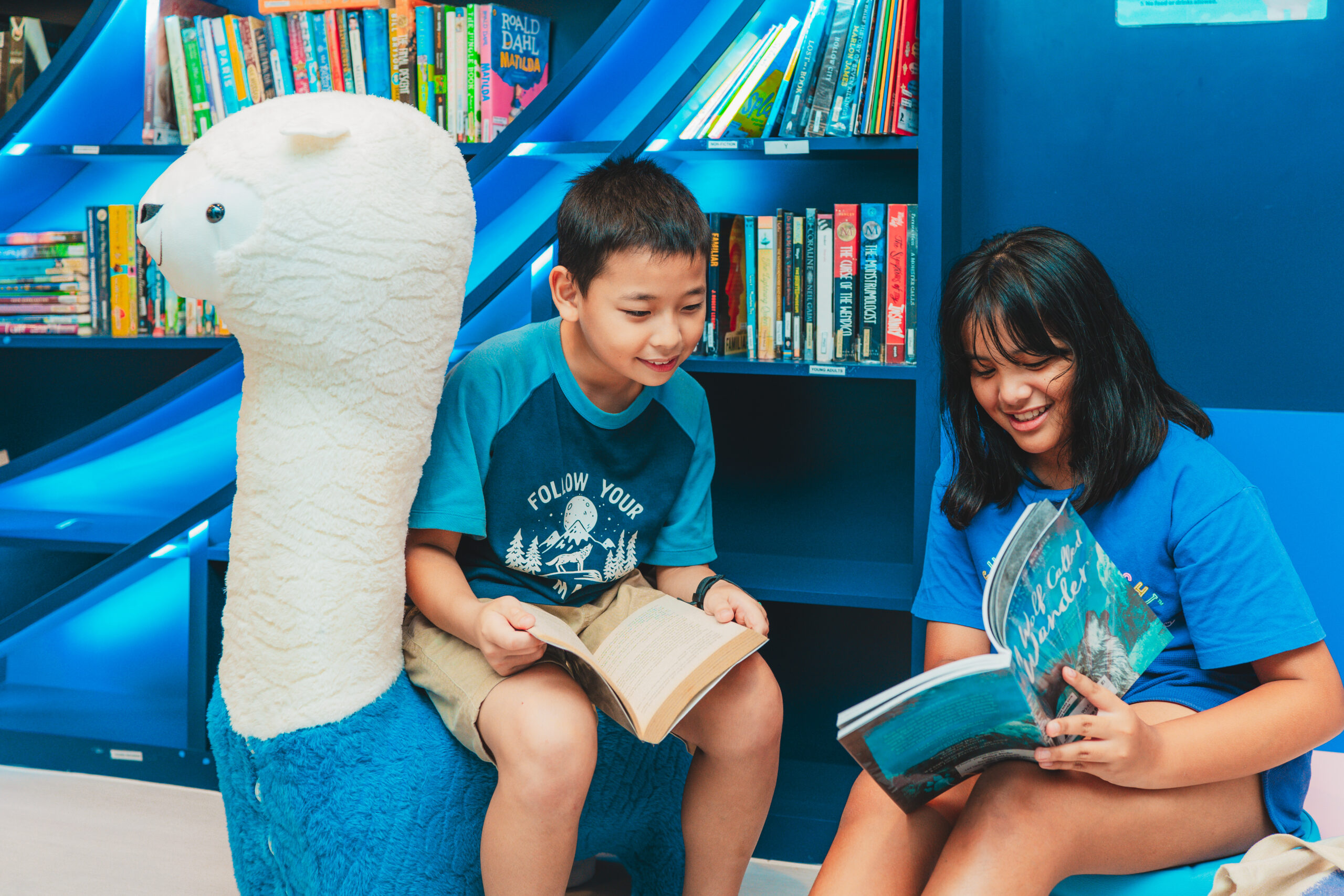
03 July 2024
5 Ways Non-Fiction Books are Good for Your Child
Picture an early childhood classroom.
People would often imagine one with a theme of imagination – decorated with fairy tales and fantastic creatures. This theme is often mirrored in the types of books that are offered to young children, with colourful picture books and fantasy stories typically filling up children’s bookshelves.
As parents, we always want to provide the best possible education for our children. While fictional books are a staple in many children’s lives, non-fiction books can provide just as much, if not more, educational value. In fact, research has shown that young children often prefer non-fiction over fiction books. This may be because children are still learning about the world around them. To these little ones, facts and stories about real-life topics are new and exciting! Sharing non-fiction books helps children connect with the world around them and allows you to support children’s development and learning.
Here are some five important ways non-fiction books are great for your child:

1. General knowledge & Critical Thinking
Non-fiction books cover a wide range of subjects, from science and history to animals and biographies. They provide a wealth of information on various topics and help children understand the world around them. Non-fiction books often present facts and data, which can help children develop critical thinking skills. They need to analyse the information presented and draw their own conclusions, which can be a valuable exercise in problem-solving and decision making.
2. Inspire Investigative skills
Young children are full of questions: “Why is the sky blue?” “How big is an elephant?” “Why do we need to sleep at night?” A parent’s first response to a child’s question may be to simply give her the answer. However, a great way to support children’s critical thinking skills is to refer them to a non-fiction book and find out the answer together. You might say, “Hmm, that is a good question. Let’s find a book teaching about the weather and find out why the sky is blue.” Using this strategy not only helps children find answers to questions they are curious about, it also leads to a love of learning and a desire to seek out more information on their own. This teaches them valuable researching and investigating skills.
3. Build Vocabulary
Non-fiction books are useful in building vocabulary. Many picture books often follow a similar format: text supported by illustrations on the page. This simple, repetitive format helps children predict the flow of the book and creates an enjoyable read-aloud experience. The format of nonfiction books, however, sometimes includes features such as a table of contents, text broken into different sections with headers, and a glossary of important words to give children a clear definition of new words. This helps improve the young reader’s vocabulary as non-fiction books often introduce new words and terminologies, with images that help support learning the respective meanings.

4. Comprehension & Creativity
Non-fiction books can help improve a child’s reading comprehension and creativity. Non-fiction books often use a more straightforward language than fictional books, as they are trying to present complex ideas and concepts. Reading non-fiction can also help enhance a child’s grammatical skills, as they are often written with proper grammar in mind. While non-fiction books may not be as imaginative as fiction, they can still stimulate a child’s imagination. Learning about different cultures, animals, and historical events can inspire children to think more often and come up with their own creative ideas.

5. Real-world Connections
Non-fiction are great tools for making real-world connections to build on children’s knowledge and personal experiences, as non-fiction books share facts or real-life events. For example, if a child has pet dogs, consider getting books that teach about dogs. This way, it further enhances the child’s experiences and interests. Children may develop a passion for science, history, or any other subject they come across in their reading, and this can lead to a lifelong appreciation for education.
In all, non-fiction books can provide valuable benefits for children. From improving knowledge and critical thinking skills to language mastery to encouraging a love of learning, non-fiction books are a must for every child’s reading diet. So next time you’re looking for a book to read with your child, consider a non-fiction title and help your child explore the world in a new and exciting way.
At Writers Studio, we understand the importance of non-fiction books. This is why we have included so many science articles and ‘fun facts’ books into our comprehensive (and growing) library! It is no surprise that our non-fiction selections are the most popular books to be read and loaned out!
Edmund Lee is a senior teacher from Writers Studio, an English tuition centre in Singapore. He works closely with Ms Goh for the past six years to educate children in heartfelt ways that shape their characters while attaining English Language mastery. Edmund has a degree in English and Literature.




